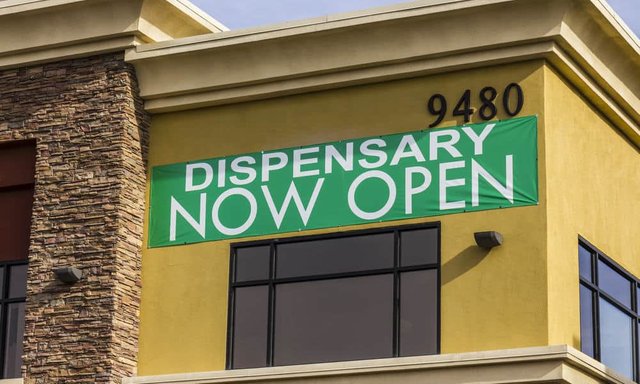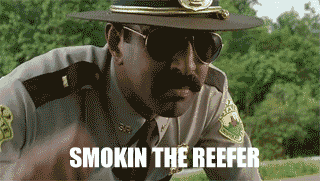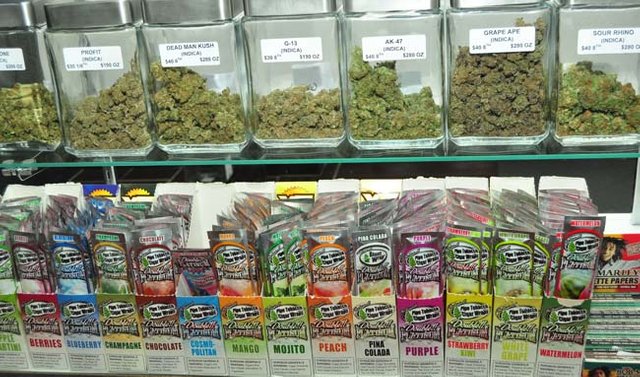More Than 80 Percent Fewer Cannabis Dispensaries Found Following Legalization

Legalization can make a mess of the cannabis market by bringing with it a clearer view for the state to impose restrictions on natural rights in this industry. When dispensaries have been practicing civil disobedience in the past for example, the state made the choice to look the other way and focus their attention and time on more important matters than arresting sick people who might be looking for medicine.
Despite certain regions not having a formal legal framework for the cannabis industry, you could still find a cannabis market that was still thriving with a variety of choice for the consumer as to where they might like to purchase their product from.

While operating outside of that legal framework it can make things more difficult for cannabis businesses, by preventing them from obtaining insurance or by making it difficult for them to access the financial system as other businesses might.
Regardless of those difficulties though, many entrepreneurs were eager to try and meet the need of people in their community who want and need cannabis. And they served those people at their own risk, many of them being unjustly ticketed and arrested in the process.

Along with the big promise of legalization, some might have thought that things might get better; they might be surprised to find out how much worse off things are now following legalization.
But when you consider circumstances from the point of the consumer, the individual who might need to find cannabis regularly, legalization has brought many difficulties for them and arguably lowered their standard of living by reducing their access to quality medicine and reducing their options. Not only that, but it's also changed the quality of life and deteriorated the liberty for those working in the industry who have seen their dispensaries unjustly closed.

There are 86 percent fewer cannabis dispensaries in Toronto now following recent legalization.
If you thought legalization would make things better it just might result in your favorite dispensary being closed down, and there isn't a chance of them being reopened if they don't win one of the coveted and highly controversial lottery licenses that have been issued in various regions either.
While they continue to close down shops that have been serving their communities for years, they leave those who need the product with few "government approved" options and you've just got to hope that you don't end up ordering one of the batches that gets recalled later for concerns over mold and bugs.
Pics:
Pic1
Pic2 South Park via giphy
Pic3 Super Troopers
pic4

This is the biggest problem about trying to be a law abiding citizen, you want something that has more benefits than cons being removed from a governmental list of "highly harmful" substances, and the government simply gives you a taste of the freedom you're actually wanting upheld, while pulling away the liberty you had from lax enforcement prior.
Where I live, the state government still refuses to legalize, or even decriminalize it, even with plenty of people wanting it. And to think the US was a proponent of growing it just as commonly as tobacco, or grains, prior to the 1900s, when big business started all of their audio and visual propaganda campaigns to save face, or keep government funding.
Hopefully the people up in Toronto manage to push less regulation through your government, a mixed market only works when regulation is minimal. And, what you've described is nowhere close to it, sounds more like a closed market designed to be disguised as a mixed market.
This has been the case in all “legalized” states. It is my assertion that this is exactly what the taxes and regulations that come with “legalization” are intended to do. Just like in every other industry that came before. What will it take for enough people to realize this and demand a change. Allowing governments to control our markets is bad for small businesses and bad for consumers. The only ones that benefit are the corporate sponsors of the government itself.
"Legalization" in every case that I know of, has been a tool to PREVENT PEOPLE FROM CURING DISEASE with cannabis. To do truly dramatic things like CURE cancer and autoimmune disorders, you needs POUNDS of FRESH plant. No "legalization" has authorized people to grow enough to do that. They offer enough to let people catch a buzz, get a little pain relief, but keep you from obtaining sufficient quantities to put pharma out of business.
Growing your own is now legal in Cape Town but we have no formal places to purchase it just yet, I think they will simply because it will be a new avenue for tax and they will smash the tax on the product so dispensaries cannot make a healthy profit from operations. It was never about helping people get access, it was about shutting down the protests for legalisation, so they gave it to you in a way that their boot is on your throat, but hey its "legal" this is what you wanted right?
Definitely the case, and always will be the case with big government, and big business. Someone up top probably owns multiple companies in the now "legal" and "lawful" industry, while shutting out the citizens who actually care about the product, and those who use it. It's a shame the world we live in. And the people lapped up the legalization like holy water, praising those who passed the bills. One step forward, two steps back, that's all that happened.
Indeed, I agree with you and we will never have truly free trade until we have truly free money, we're not really private citizens we're more captives of the state but the ring fence is kept just far enough that most people don't see it.
@doitvoluntarily
Your article says it is about the effects of legalization vs criminal prohibition...
But, what you are actually talking about is being "regulated" vs criminal prohibition.
When you speak of being "legal" it is not actually legal until it is as legal as growing roses.
If cannabis were actually legal "like roses" then anyone could grow and sell as much as they see fit. In that case anyone who wanted to could either grow their own or pay a very small fee (due to massive competition in a truly legal market) for someone else to grow it for them.
There is yet to be any jurisdiction where cannabis is actually legal that I know of. If you know of one, please let me know?
Btw, I live in Nevada City, California where legalization now finances arresting people who do not get licensed ( refuse on principle, can't afford to, aren't allowed, etc). The price of cannabis has fallen so low that the local economy is collapsing.
Freedom and actual free markets don't necessarily create concentrated wealth, in fact they tend to do the opposite. It is only regulated markets that concentrate wealth by limiting who is allowed to be a producer and who must be a consumer. This way supply and demand are structured to artificially inflate scarcity and thereby prices. The same artificially inflated prices happen even more during prohibition.
Regulation and decriminalization is a controlled market without filling prisons and gives a license to those who can afford it. Prohibition and criminalization is a controlled market that fills prisons and "licenses" are not given - they are taken by those willing to break the law.
I would rather be actually free with an actual free market full of cheap/free cannabis then be getting rich off cannabis because others are going to prison for it.
Love Honor Respect
Posted using Partiko Android